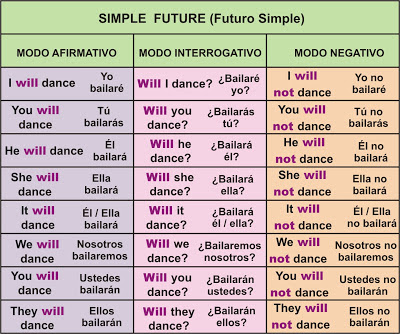OBLIGATION: MUST/MUSTN'T /HAVE TO/ DON'T HAVE TO
https://inglesnaturalmente.com/diferencias-entre-must-y-have-to-y-mustnt-y-dont-have-to/
https://test-english.com/grammar-points/a2/have-to-dont-have-to-must-mustnt/
https://agendaweb.org/verbs/modals-must-have-to-exercises.html
ADVICE: SHOULD/SHOULDN'T
https://test-english.com/grammar-points/a2/should-shouldnt/
https://agendaweb.org/exercises/verbs/modals/should-shouldnt
https://www.englishexercises.org/makeagame/viewgame.asp?id=1734
https://elt.oup.com/student/solutions/elementary/grammar/grammar_05_022e?cc=global&selLanguage=en
OUGHT TO -SHOULD
a) Se pueden utilizar indistintamente para dar consejos y hacer recomendaciones, aunque should es mucho más frecuente. Ought to apenas se usa en negativa e interrogativa.
CAN, COULD, BE ABLE TO
USOS DEL CAN:
a) Para expresar habilidad o capacidad: “saber”, “poder”.
b) Con acciones que empiezan en el pasado pero todavía tienen continuidad en el presente.
c) Para hacer peticiones, dar y pedir permiso de manera informal.
d) Para indicar posibilidad: We can do that later. (Podemos hacer eso luego).
En negativa tiene, además de estos, otros dos usos:
e) Para expresar deducción.
f ) Para indicar prohibición. You can´t smoke here. (No puedes fumar aquí).
BE ABLE TO también indica habilidad y posibilidad como can, pero en los tiempos que le faltan a este verbo modal. Will you be able to do it before six o´clock?. (¿Podrás hacerlo antes de las 6?)
COULD
a) Se usa para expresar habilidad y capacidad en el pasado.
b) Para hacer peticiones o pedir un favor de manera más formal que con can.
c) Para hacer sugerencias.
d) Para indicar posibilidad, pero dando a entender que es más remota que si usamos can. We could go on friday afternoon.. (Podríamos ir el viernes por la tarde).
https://test-english.com/grammar-points/b1/can-could-be-able-to/
https://www.englisch-hilfen.de/en/exercises/modals/can.htm
https://www.ecenglish.com/learnenglish/lessons/can-could-be-able
MAY/MIGHT
a) Ambos verbos expresan la posibilidad de que algo ocurra en el presente o en el futuro, sin ser seguro. Como hemos visto antes, can también expresa posibilidad pero denota que las circunstancias reales lo permiten.
b) May también se utiliza para pedir y dar permiso de una forma más educada que con can.
https://www.tolearnenglish.com/exercises/exercise-english-2/exercise-english-48099.php
NEED TO/ NEEDN'T
a) Need to expresa obligación o necesidad.
b) Needn´t indica ausencia de obligación o necesidad.
https://www.tolearnenglish.com/exercises/exercise-english-2/exercise-english-99390.php
https://www.englisch-hilfen.de/en/exercises/modals/must_not_need_not.htm
https://elt.oup.com/student/solutions/preint/grammar/grammar_07_012e?cc=global&selLanguage=en







